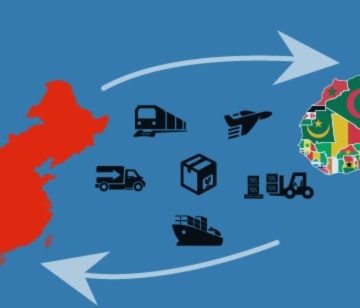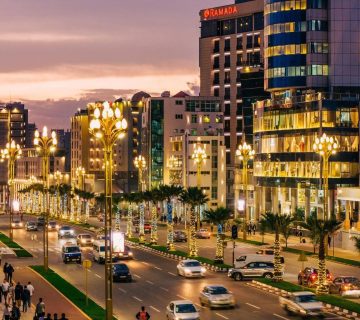On Monday, June 21, 2021, millions of voters across Ethiopia cast their vote in the much anticipated federal and regional council elections twice postponed due to COVID-19 pandemic, logistical challenges and delayed voter registration process. Although overshadowed by rising tensions and political divisions, instability and grueling war in Tigray, the recent elections are pivotal for Ethiopia in many significant ways. First, the elections are the first to be held under new electoral laws and electoral processes managed by a reformed National Electoral Board of Ethiopia (NEBE), following reforms implemented by the Prime Minister. It has provided an opportunity for many Ethiopian’s to directly cast their vote, unlike previous polls which happened under heavy authoritarianism, political suppression, and government control. Second, the elections have been more competitive than in past electoral cycles. A total of 47 political parties including 20 national parties registered to compete for the 547 seats at the House of People’s Representatives and other Regional Council positions.
No vote in some regions
Due to widespread insecurity, legal and logistical challenges, voting did not happen in about one-fifth of the country’s electoral constituencies. Elections were suspended in the northern Tigray region where a grueling war has been ongoing since November 2020. Ever since Abiy took power and stripped the Tigray People’s Liberation Front (TPLF) – once a dominant party in the then ruling coalition Ethiopia People’s Revolutionary Democratic Front (EPRDF) – of its power, the federal government and TPLF have been embroiled in increasing tensions. The proximate cause of the Tigray conflict was, however, an election dispute which started in June 2020 when the federal government announced the delay of national polls due to the COVID-19 pandemic. The move by Tigray Regional Council to hold regional elections in September 2020, in defiance of the federal order fuelled tensions and set the stage for subsequent altercations that eventually resulted in a military conflict in which the Ethiopian National Defence Forces (ENDF), Amhara forces and Eritrean forces have been fighting against TPLF and its paramilitary forces. Consequentially, thousands of people have both died and fled their homes with the UN Security Council recently warning of imminent famine in the region. Fighting goes on seven months later with TPLF, now branded a terrorist organization, continuing to wage insurgency attacks from hideouts across the mountainous rural areas in Tigray.
Elections also did not take place in Harari and Somali regions as well as other constituencies throughout the country facing chronic intercommunal violence such as those in Benishangul-Gumuz. Moreover, key opposition parties especially from the Oromia region – the Oromo Liberation Front (OLF) and the Oromo Federalist Congress (OFC) – boycotted the polls. Both parties claim that the arrest and detention of their leaders, Jawar Mohamed and Bekele Gerba, following protests that erupted in after the killing of Oromo musician Hachalu Hundesa, presented undue pressure and suppression from the government.
Test of Abiy’s Reforms
Abiy Ahmed came to power in 2018, on the back of nationwide protests that threatened to tear the country apart. He quickly embarked on a flurry of ambitious reforms in which he hoped to bring peace, unity, and prosperity to the country. The most remarkable was the rapprochement between Ethiopia and Eritrea after 20 years of frozen relations and a cold war and which earned him the prestigious Nobel Peace Prize in 2019. Internally, he attempted to free the political and civic space and steer the country towards democracy. Just months into his premiership he ordered the release of political prisoners, welcomed back exiled politicians and started the process of reforming and strengthening the capacity of democratic institutions including the NEBE and Federal Supreme Court to independently carry out their mandates. A new civil society law passed in 2019, has also made it possible for civil society organizations to engage more actively in promoting human rights and democracy through civic and voter education and capacity building for various institutions. Moreover, the dismantling of the EPRDF coalition to form the Prosperity Party (PP), despite triggering intense divisions within the Oromo ruling elite, and causing the departure of the Tigray People’s Liberation Front (TPLF), was intended to help nationalize politics and move away from the ethnic identity politics that plagued the country for years.
Despite initial progress towards political liberalization, Prime Minister Abiy Ahmed has been increasingly accused of political intolerance and authoritarian tendencies by his political opponents. In the ongoing civil war in Tigray, federal forces are alleged to have orchestrated massacres, sexual assault, and ethnic cleansing. Elsewhere across Ethiopia, Abiy’s reform agenda has been blighted by persistent ethnic and insurgent-government violence. Ethnic militias continue to operate in Oromia, Benishsangul-Gumuz, and Ahmhari regions and have killed hundreds and left about two million people displaced from their homes. Further, the ongoing dispute over the construction and filling of the Grand Ethiopian Renaissance Dam (GERD) and a simmering border dispute with Sudan completes the list of the current challenges pressuring Abiy’s government.
Abiy’s win and what might follow
There is a high chance that Abiy will win the elections. The non-participation of TPLF and OLF left a very weak opposition base to compete with the ruling Prosperity Party (PP). However, there is a high likelihood that the outcome of the elections will be contested as some parties may view the new government as illegitimate and lead to popular unrest across Ethiopia’s central regions. A looming threat exists in Oromia where the Oromo Liberation Army (OLA), an offshoot militant group branded terrorist organization, has declared a “total war” with federal authorities, in what it claims is part of the struggle to secure complete self-determination of Oromia. With the growing public dissatisfaction with Abiy’s leadership in Oromia, OLF may potentially mobilize supporters and lead protests against the government, which could set off violence and spiral into other regions. Insecurity, elsewhere in Tigray, Benishangul-Gumuz and other regions also remain a special concern.
Finally, beyond the challenges, victory could strengthen Abiy’s hand and help consolidate power within the PP. This could serve as a good opportunity for Abiy and the new government to embrace reconciliation and further democratic consolidation including strengthening democratic institutions, protection of human rights, and respect for the rule of law.
Otieno O. Joel is a Researcher at the HORN Institute
Photo: Ethiopians queue to cast their votes in the general election, next to a national flag, at a polling center in the capital Addis Ababa, Ethiopia, Monday, June 21, 2021 (Photo Credits: Ben Curtis/AP)
The contents of this article are copyright of © The HORN Institute 2022. All rights reserved. Any redistribution or reproduction of part or all of the contents in any form and for whatever reason is prohibited. You may use the content of this article for personal reasons, but acknowledge the website as the source of the material.



